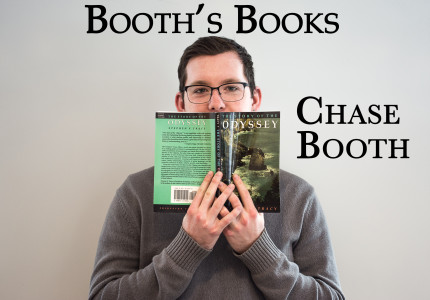Column by Chase Booth
boothcha@grinnell.edu

One of Cormac McCarthy’s earliest novels, “Outer Dark,” is a southern Gothic narrative that is sure to appeal to the macabre-loving audience. Those who recognize McCarthy’s name most often attach it to his best selling 2006 novel, “The Road.” However, long before father and son set out together in a post-apocalyptic world, McCarthy penned this far darker novel aptly named for its harrowing themes, despondent characters and brooding ambiance.
In a poor region of Appalachia, Culla abandons the newborn baby of his sister Rinthy in the woods, prompting her to set out on her own to track down the wandering tinker whom she believes has her child. Upon Rinthy’s departure, Culla begins his own journey to find her and bring her back to their dilapidated home in the mountains. McCarthy’s “Outer Dark” follows brother and sister on their separate but similar quests to find family in a world filled with outlaws, murderers and the ominous Bearded Man, who follows silently behind in the shadows.
As with many of McCarthy’s works, an undertone of nihilism emerges through the sieve: “Times is hard,” says the narrator at one point. “Hard people make hard times. I’ve seen the meanness of humans till I don’t know why God ain’t put out the sun and gone away.”
The existential wanderings of “Outer Dark’s” characters blend well with McCarthy’s repetition of themes of darkness, blindness and violence to create a world that echoes something one might find in Dante’s “Inferno”—a veritable wasteland with little hope of redemption. When reading McCarthy’s novels there is no clear character which the reader is meant to identify with, but there are moments of such intense human suffering that we cannot help but cheer on the characters as they overcome plights which would tear down even the sturdiest of us.
That being said, to read this novel is not to come out unscathed or with newfound hope in humanity. “Outer Dark” tackles complex social issues common to the southern Gothic tradition, of which the macabre reigns supreme. McCarthy does not moralize or evaluate. He explores themes through poignant character development and setting. Culla and Rinthy’s home in Appalachia is set in a very poor and rural region of America, heightening the drama of their wanderings over ambiguous distances and encounters with strangers who are living on the edge of society just trying to survive.
McCarthy does not intend for his readers to only despair while reading this novel, however. On the contrary, readers of “Outer Dark” may take delight in its compact plot and short length and revel in McCarthy’s unique stylistic prose. It is simple in its use of short declarative sentences, yet enthralling all the same in its masterful construction. I found myself backtracking to reread paragraphs, not because I was lost, but to relive the thrill of reading such finely crafted prose. Those who have read other McCarthy novels will notice familiar elements indicative of his works: the absence of quotation marks indicating character dialogue, a masterful command of regional dialect subtleties and an exhilarating use of the imperative meant to draw the reader into the story.
“Awake from this dream,” McCarthy exhorts us in “Outer Dark’s” opening paragraphs, a command not only directed toward the characters of the novel but also to us as readers, a call to stop sleeping and wake up to the problems facing the world. McCarthy also has a sharp mind for metaphors and similes. Perhaps my favorite comes toward the end of the novel, when Rinthy is sitting in a rocking chair on a porch and the narrator observes how “The flowers in the dooryard have curled and drawn as if poisoned by dark and there is a mockingbird to tell what he knows of night.”
Although you would be hard-pressed to find someone who would argue that “Outer Dark” is an example of McCarthy’s better novels, a small cult following does exist on the interwebs ceaselessly analyzing the complex themes of this novel, especially the figure of the Bearded Man. If dark fan fiction is your thing, if you’re tired of reading bad scholarship or if you’re looking for a short read, “Outer Dark” is one of the few novels that will stick with you afterwards and beg for future rereading.














































